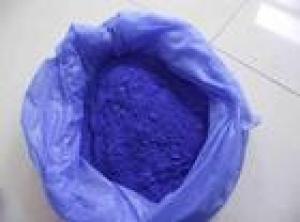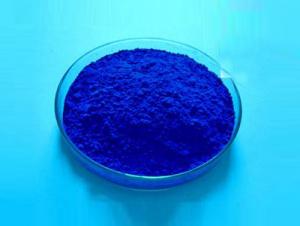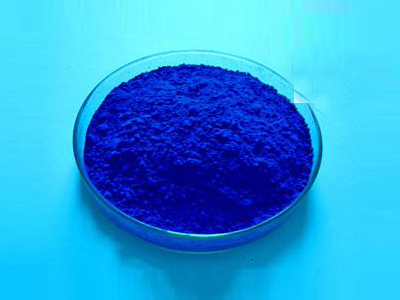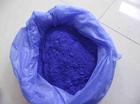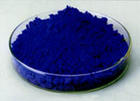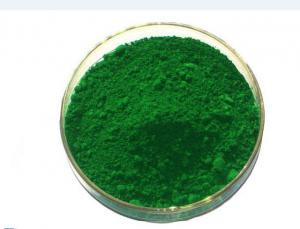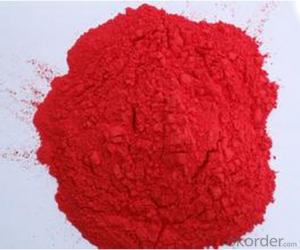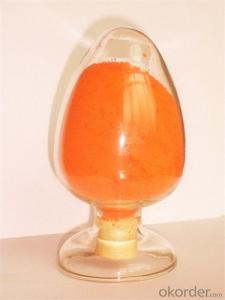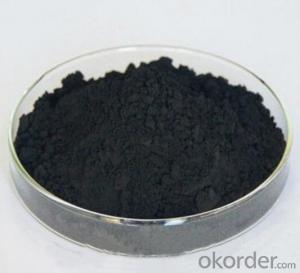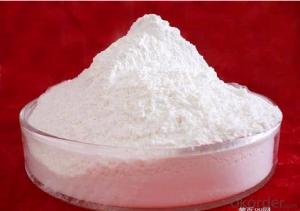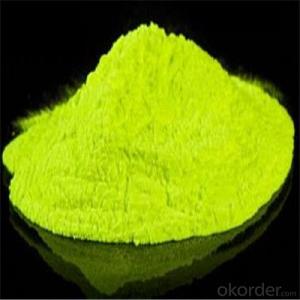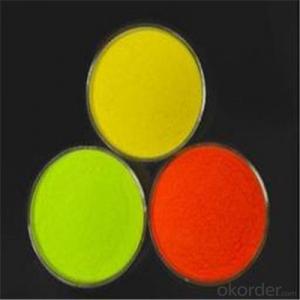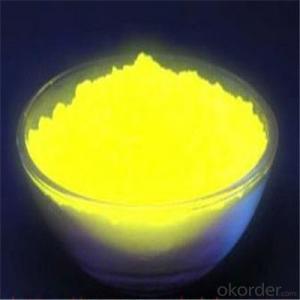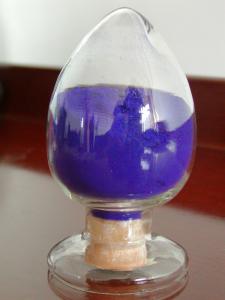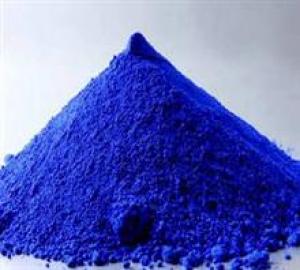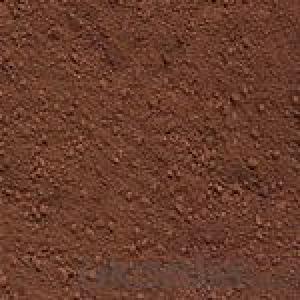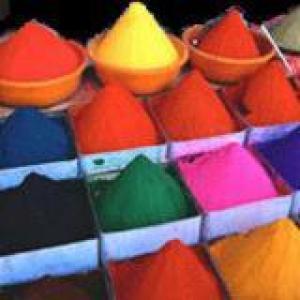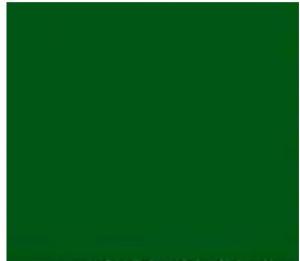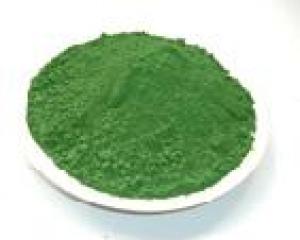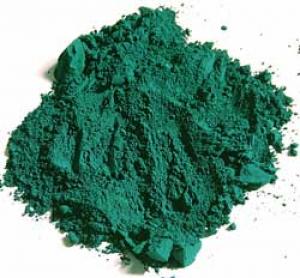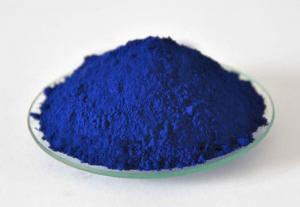Ultramarine Blue For Pigment (462, 465)
- Loading Port:
- Shanghai Port
- Payment Terms:
- TT or LC
- Min Order Qty:
- 1 Metric Ton m.t.
- Supply Capability:
- 8000MT Per Year m.t./month
OKorder Service Pledge
OKorder Financial Service
You Might Also Like
Particular description Of Ultramarine Blue Laundry Grade :
alias:Sodium Alumino Sulphosilicate
ultramarine blue laundry grade Chemical
properties:Formula: Na6Al4Si6S4O20
Molecular weight: 862.60578
ultramarine blue laundry grade Physical
properties:Non-Toxic, it is a safe pigment,Good ability for heat resistance,Light and weather resistance.
Excellent dispersibility.Non-migrate.
Other tech indexs:
Index Name | Index | Result | |
1 | Colour (Compared with standard sample) | Conform | yes |
2 | Tinting Strength % (Compared with standard sample) | 100+5 | 102 |
3 | Solute in Water % ≤ | 0.2 | 0.14% |
4 | Free Sulfur % ≤ | 0.05 | 0.035% |
5 | Moisture (100+2°C) % ≤ | 1.0 | 0.45% |
6 | Sieve Residue(325 mesh) % ≤ | 0.1 | 0.07% |
7 | Oil Absorption % | 25-45 | 33 |
8 | Organic Tinting Material | None | |
9 | PH Value | 8 - 10 | 8.5 |
Ultramarine blue laundry grade Usage:
Ultramarine Blue, PB(Pigment Blue) , is an inorganic pigments color. It is a sodium alumino-sulphosilicate. This pigment is the synthetic form of Lazurite. Compared with other blue pigment or dyes,ultramarine blue has the advantages of clean and bright reddish blue shade.
Ultramarin blue laundry grade Storage:
1.Be set to cool.dry and ventilated place .away from Fire source .
2. Sealed,Prevent from rain .sunlight and strong acis or alkali.
3.Lightly transport and protect from package damage.
Ultramarine blue laundry grade Packing:
25kgs / kraft paper bag(or as your requirements )
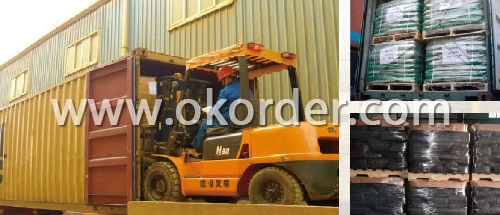
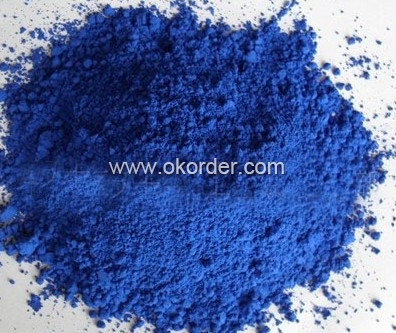
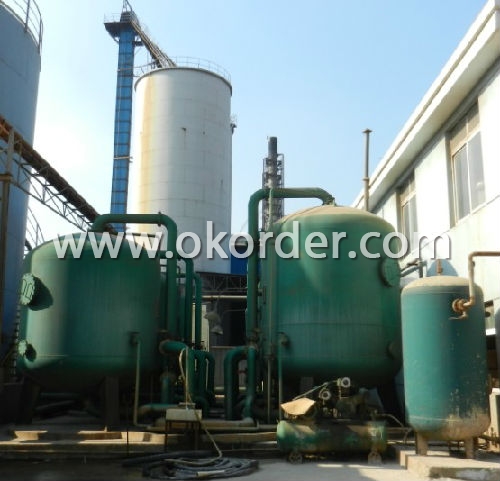
- Q: Are carontenoids and anythocyanin accesory pigments.
- Accessory Pigments
- Q: Why does a plant use several pigments instead of one or two?Why are plant leaves green?
- The several other pigments that are found with chlorophyll a multi-task. They work with chlorophyll a to provide energy by absorbing light from the sun and other jobs as well. Some accessory pigments help protect the plant while collecting energy, others help regulate the photosynthetic process.
- Q: i would like to now so i could put it in a marker thanks..
- Isn't all ink pigmented? A quick search for make your own ink turned up many recipes. Here is one: Basic Permanent Black Ink: 1 egg yolk 1 tsp gum arabic 1/2 cup honey 1/2 tsp lamp black (buy in a tube or make by holding a plate over a lit candle) Mix egg yolk, gum arabic and honey in a small bowl.
- Q: What do chlorophylls, cartenoids and phycobilins reflect? And what wavelengths of light do they absorb?
- Carotenoids generally reflect yellow, orange, or red and absorb blue to blue-green light spectra. Xanthophyll absorbs well at 400-530 nm Beta-carotene absorbs most strongly between 400-500 nm. Fucoxanthin absorbs light primarily in the blue-green to yellow-green that penetrates deeper in water, peaking at around 510-525 nm and again at 450-540 nm. This reflects a yellow brown giving brown algae their color. Phycobilins are not found in leaves except as a phytochrome. They occur in Cyanobacteria (bluegreen algae) and Rhodophyta's (red algae) photosynthetic pathways as accessory pigments a part of the light reaction pigment systems energy donors to the reaction center. Phytochromes respond to far red between 700-800 nm. Phycoerythrin is a phycobilin pigment in rad algae that reflects red light and is therefore responsible for the color of most red algae.
- Q: I hear about it cause my Friend is albino and she was born with no pigments in her hair,skin or eyes
- Melanin is a pigment that is ubiquitous in nature, being found in most organisms (spiders are one of the few groups in which it has not been detected). In animals melanin pigments are derivatives of the amino acid tyrosine. The most common form of biological melanin is eumelanin, a brown-black polymer of dihydroxyindole carboxylic acids, and their reduced forms. All melanins are derivatives of polyacetylene. The most common melanin – dopamelanin – is a mixed copolymer of polyacetylene, polyaniline, and polypyrrole. Another common form of melanin is pheomelanin, a red-brown polymer of benzothiazine units largely responsible for red hair and freckles. The presence of melanin in the archaea and bacteria kingdoms is an issue of ongoing debate among researchers in the field. The increased production of melanin in human skin is called melanogenesis. Production of melanin is stimulated by DNA damage induced by UVB-radiation,[1] and it leads to a delayed development of a tan. This melanogenesis-based tan takes more time to develop, but it is long lasting.[2] The photochemical properties of melanin make it an excellent photoprotectant. It absorbs harmful UV-radiation and transforms the energy into harmless heat through a process called ultrafast internal conversion. This property enables melanin to dissipate more than 99.9% of the absorbed UV radiation as heat[3] (see photoprotection). This prevents the indirect DNA damage that is responsible for the formation of malignant melanoma and other skin cancers. Albinism (from Latin albus, white; see extended etymology, also called achromia, achromasia, or achromatosis) is a congenital disorder characterized by the complete or partial absence of pigment in the skin, hair and eyes due to absence or defect of an enzyme involved in the production of melanin.
- Q: Hi what is pigment?i went on mac cosmetics and they sell all different kinds of stuff called pigment. I want to use it to make lip gloss but is it safe for my lips?please answer soon!
- pigment is just color. the color shown or what makes a color. MAC is GREAT!!!!! its a color used to product a color or the actual color itself. either way....pigment means color.
- Q: how exactly do pigments work? i know that they absorb every color except the one that we see, but what are the exact physics or whatever behind the selective absorption of the light?
- Different pigments mostly absorb different range at different wavelength of light, but plant -as I know- mostly containing chlorophyll does not absorb green light so we see plants as green.
- Q: i also need the color they are links would be great if you know a good one
- If you want to physically separate the different pigments, you can use a method called paper chromatography. The chlorophyll is dissolved in a certain solute and is allowed to move through a piece of paper. The different pigments will move at different speeds and they will be separated. But if you simply want to identify the different pigments, you can use another method called spectrophotometry. Different chlorophyll pigments absorb photons of different wavelength. In diethylether, chlorophyll a has approximate absorbance maxima of 430 nm and 662 nm, while chlorophyll b has approximate maxima of 453 nm and 642 nm. So that's how you distinguish between the two.
- Q: What are MAC pigments?
- MAC pigments are sorta like loose eyeshadow. They are much more pigmented (concentrated color) which means you can use less. They are also made specially to stay and adhere on the skin for longer/better. Can be used dry or wet. Love them!!
1. Manufacturer Overview
| Location | Hunan, China |
| Year Established | 1998 |
| Annual Output Value | Above US$ 30 Million |
| Main Markets | 20.00% North America 15.00% South America 15.00% Eastern Europe 10.00% Southeast Asia 10.00% Northern Europe 10.00% South Asia 10.00% Western Europe 5.00% Africa 5.00% Mid East |
| Company Certifications | ISO9001:2000; |
2. Manufacturer Certificates
| a) Certification Name | |
| Range | |
| Reference | |
| Validity Period |
3. Manufacturer Capability
| a) Trade Capacity | |
| Nearest Port | Shanghai Port |
| Export Percentage | 41% - 50% |
| No.of Employees in Trade Department | 6-10 People |
| Language Spoken: | English; Chinese; |
| b) Factory Information | |
| Factory Size: | Above 10,000 square meters |
| No. of Production Lines | Above 10 |
| Contract Manufacturing | Design Service Offered; Buyer Label Offered |
| Product Price Range | High; Average |
Send your message to us
Ultramarine Blue For Pigment (462, 465)
- Loading Port:
- Shanghai Port
- Payment Terms:
- TT or LC
- Min Order Qty:
- 1 Metric Ton m.t.
- Supply Capability:
- 8000MT Per Year m.t./month
OKorder Service Pledge
OKorder Financial Service
Similar products
Hot products
Hot Searches
Related keywords
